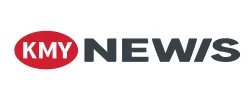act as graphic designers 15 years experience i will give you title of my AdSense post your job is provide me image for my post should be unique and non copy rights issues
provide me realistic images
10 Best SaaS Tools That Can Automate Your Business Processes
In the modern, high-speed digital environment, companies are in a continuous search of methods to facilitate their business processes, cut overheads, and enhance productivity. An excellent method to do it is through the employment of Software as a Service (SaaS) tools. They are cloud-based platforms which are scalable, flexible and highly featured to enable you manage certain aspects of your business more effectively.
What do you elect to do in a world where the possibilities are truly endless in 2025? This guide will discuss the best 10 SaaS tools that could change the way you run your business, increase its efficiency, and enable you to remain competitive in a fast-paced market. Need some tools to improve communication, project management and automate some marketing processes? You will find them here and for every business.
1. Slack
Description: Slack is a prominent communication platform that enables teams to remain united and work together with ease. It also integrates different apps and services and with its integration capabilities, information can flow easily across departments.
Notable Features: Real-time messaging, sharing of files, direct integrations with other SaaS applications.
Why It’s Great in 2025: With remote work only increasing in popularity, Slack offers a communication hub that keeps all teams organized in one place, facilitating an easy collaboration, even when the teams are located in various time zones.
2. Trello
Description: Trello is a flexible project management software which assists teams in organizing tasks and projects into boards, lists, and cards.
Main Strengths: Easy drag-and-drop task view, task tracking, group work tools.
Best of 2025: As companies adopt agile working spaces, Trello allows easy prioritization of tasks, monitoring of progress and organization.
3. Zoom
Description: Zoom is a video meeting system, which provides HD video meetings, webinars, and collaboration tools to help teams around the globe connect.
Main Advantages: Simple video meetings, screen sharing, webinar, online collaboration.
Why It’s Great in 2025: Zoom has established itself as the default choice of businesses with remote workers, and it will allow smooth communication during online meetings and conferences.
Benefiting Industries: Education, healthcare, tech startups.
4. HubSpot
Description: HubSpot is an integrated CRM system built to enable businesses to manage customer relationships, automate marketing and encourage sales.
Main Advantages: Lead generation, tracking the customers, inbound marketing automation.
Why It’s Great in 2025: HubSpot offers strong marketing automation and CRM, which is why it is so straightforward to generate leads and expand sales within a single platform.
5. QuickBooks Online
Description: QuickBooks Online is an accounting software as a service which enables businesses to manage invoices, expenses, payroll and taxes.
Noteworthy Features: Simplified bookkeeping, automated invoicing, tax filing, and financial reporting.
Why It’s Great in 2025: QuickBooks allows small businesses to manage their accounting needs remotely so that your finances are in good shape without having an in-house accountant.
Benefiting Industries: Small business, Freelancers, Accountants.
6. Asana
Description: Asana is a simple project management tool that enables groups to plan their work, delegate and monitor progress.
Notable Advantages: Tasking, deadline, project scheduling, reporting.
Why It’s Great in 2025: With the expansion of remote and hybrid workforces, the user-friendly Asana platform enables teams to manage everything, whether it is a small task or a large project, in a central location.
Benefiting Industries: Marketing, product development, customer service teams.
7. Dropbox
Description: Dropbox is a cloud-based storage system which enables companies to share and store files safely.
Main Advantages: Huge storage of files, simple sharing, versioning of files.
Why It’s Great in 2025: Dropbox is a stable application which can be used by remote teams that require an opportunity to store and share files in a secure and convenient way.
Benefiting Industries: Creative agencies, legal firms, design studios.
8. Google Workspace
Description: Google Workspace (previously G Suite) is an offering of productivity tools (such as Gmail, Google Drive, Google Docs, Sheets, etc.) to businesses.
Notable Advantages: Cloud-based cooperating, storage, and email services in real time.
Why It’s Great in 2025: Google Workspace can easily integrate with other tools, which enables businesses to cooperate effectively, both in the office and when operating remotely.
Benefiting Industries: Corporate offices, schools and colleges, startups.
9. FreshBooks
Description: FreshBooks is a simple accounting software that is specialized in small businesses, freelancers, and entrepreneurs.
Main Advantages: Invoicing, expenses, time tracking, projects.
Why It’s Great in 2025: FreshBooks will be petite business and freelancer-friendly due to its invoice and accounting services being all-in-one and having a straightforward interface.
Benefiting Industries: Freelancer, small business owners, contractors.
10. Salesforce
Description: Salesforce is a prominent CRM system designed to assist companies to manage sales, customer relationships, and marketing campaigns.
Notable Features: Forecasting sales, lead management tools, analytics, as well as customer service.
Why It’s Great in 2025: The power of Salesforce CRM system will provide businesses with scale and automation in customer outreach and ultimately help grow and retain better business.
FAQ Section
Q: What is SaaS and how does it operate?
A: SaaS (Software as a Service) is a cloud computing service model, which offers businesses an opportunity to gain access to software applications on a subscription basis. SaaS also allows businesses to access tools through the internet instead of managing and maintaining physical servers and software. Scaling and updating is also easier.
Q: What are the benefits of SaaS tools in running a business?
A: SaaS tools enable companies to increase efficiency through automation of business processes, increased collaboration, and cutting of overhead expenses. Whether it is accounting or project management, SaaS tools offer scalable services that, potentially, may optimize several processes in a company.
